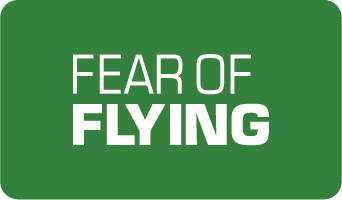Psychology
Overcoming a fear of flying is possible, but it is not easy!
When people feel anxious they are usually thinking that the worst possible thing is going to happen, they feel very uncomfortable in their body (racing heart, sweaty palms, sick feeling) and have a strong desire to avoid the fearful situation. Treatment for fear of flying addresses all three aspects of fear: cognitive, physiological and behavioural.
Some of the most common fears are:
The plane crashing
Dying
Feeling trapped and unable to escape
Having a panic attack and feeling embarrassed
Feeling out of control
We know that all fears are caused and maintained by both genetic and environmental factors.
Some of the most common causes are:
An unhelpful or anxious thinking style (e.g. pessimistic or negative thinking, black and white thinking, catastrophic thinking)
Growing up with a parent who is afraid of flying resulting in limited or no flying experience
A previous frightening experience on a plane (e.g. severe turbulence, technical difficulties leading to re-routing of a flight or an emergency landing).
Exposure to disturbing programs (e.g. air crash investigations, a fictional film including an plane disaster, news items on plane disappearances and crashes)
Knowing someone who has had a frightening flight experience
A limited understanding of planes and the process of flying
The best things you can do to overcome your fear are:
Question how you are thinking about flying. Ask people you know who like flying what they think about your fears. Are you thinking realistically or unrealistically?
Identify whether you have a parent who feared flying or had unhelpful thinking styles. If so, you probably haven’t had the opportunity to learn to think differently about flying. Likewise if your parent’s fear stopped you from travelling by plane during your childhood you would not have learned how safe and fun flying is.
If you have had a bad experience in the past, question the likelihood of it happening again? If it was turbulence you experienced, learn more about turbulence – it is a natural part of all plane travel and is never dangerous but can be uncomfortable.
If you are afraid because of what you have heard on the news or seen on a plane crash investigation program, remind yourself that the news does not show every plane that lands successfully and safely every second of every day of every year. The probability of a plane landing safely is much higher than anything possibly going wrong.
Knowing someone who has had a bad experience does not mean you will also have a bad experience. Life just doesn’t work that way!
Try and read as much as you can about planes and flying and talk to other people about it. The more you know the less worried you will be.
Book a flight (start with a short sector flight) so that you can begin to learn that flying is safe and fun.
Relax – panicky breathing and tension in your body is a result of your anxious thinking and is not going to help you think clearly before or during a flight.Breathe in slowly (3 seconds), hold your breath for a 3 seconds and then breathe out for 3 seconds, this will slow down your breathing rate and reduce the sensation of anxiety.
To release bodily tension start at your feet and slowly move towards your head. Concentrate on each part of your body (ie. feet, calves, thighs, stomach, chest) tense the muscles first and then release them allowing them to feel floppy. Remember this floppy feeling and practice achieving this feeling as often as you can and throughout your flight.
Do not avoid flying, by avoiding flying you are sending yourself a strong message that flying is dangerous and you are not capable of managing.


